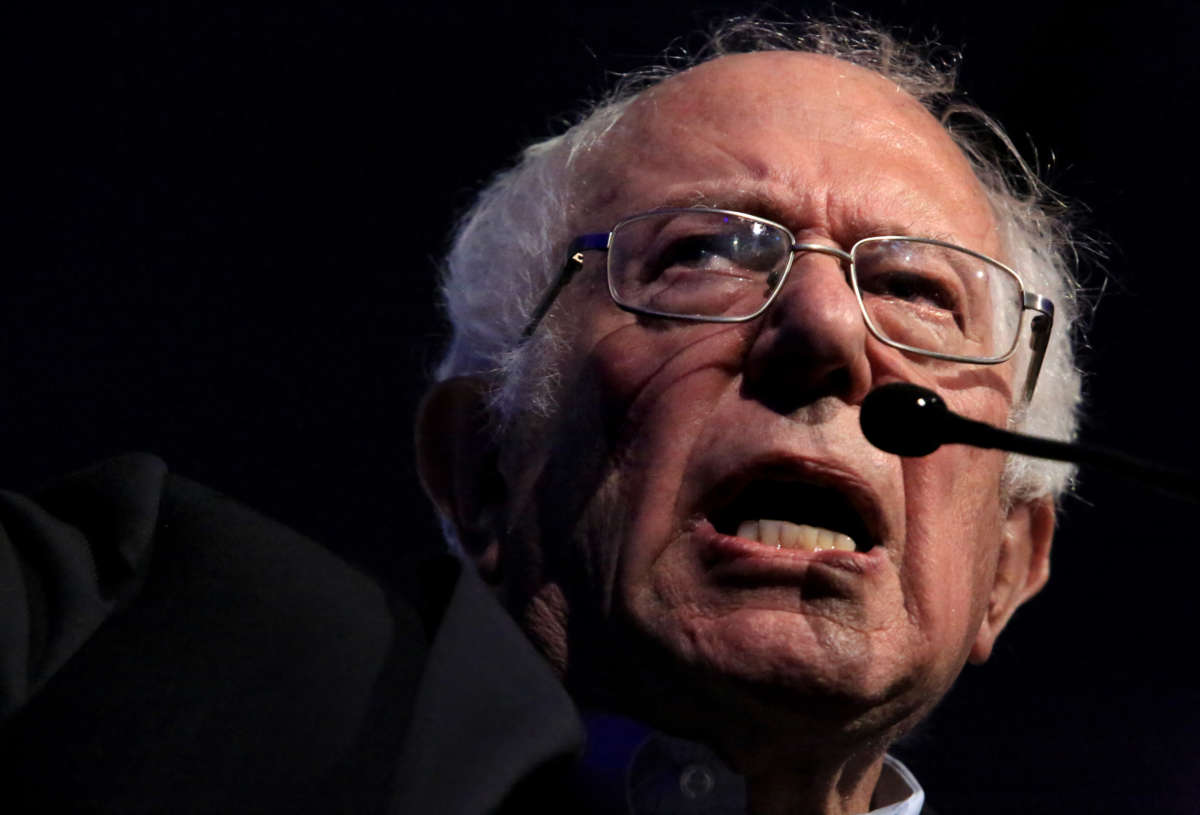Did you know that Truthout is a nonprofit and independently funded by readers like you? If you value what we do, please support our work with a donation.
On Sunday, Sen. Bernie Sanders (I-Vermont) said that he is still fighting to incorporate his plan to expand Medicare and allow the program to negotiate drug prices into the Build Back Better Act.
“I spent all of yesterday on the telephone,” Sanders said on CNN, referring to conversations about prescription drug pricing. “Look, we are paying the highest prices in the world for prescription drugs. The pharmaceutical industry has spent hundreds of hundreds of millions to make certain that Americans pay 10 times more for some drugs than the Canadians or the Mexicans do. That fight continues.”
Sanders also said that he is still negotiating for the inclusion of his plan to expand Medicare to cover dental, vision and hearing. “The fight to expand Medicare — look, poll after poll shows the American people understand that it’s not acceptable that elderly people have teeth in their mouth that are rotting, they can’t digest their food, they don’t have the vision that they need in order to read the newspaper,” he said. “So we are continuing that effort.”
When asked if he wanted to add those provisions before a potential House vote on the bill this week, Sanders responded: “Absolutely.” This echoes previous statements the senator has made on the proposals, despite Democratic leaders appearing to abandon the ideas.
“The expansion of Medicare to cover dental, hearing and vision is one of the most popular and important provisions in the entire reconciliation bill. It’s what the American people want. It’s not coming out,” Sanders wrote on Twitter last week.
These proposals have been a point of contention for the pharmaceutical lobby and conservative Democrats who are aligned with the industry. The latest draft of the bill released by the White House, which haphazardly hacked the price tag in half to a mere $1.75 trillion over ten years, didn’t include the prescription drug proposal and only proposed adding hearing benefits to Medicare.
Sen. Kyrsten Sinema (D-Arizona) has been fighting against the drug pricing proposal, having received hundreds of thousands of dollars from the pharmaceutical industry over the course of her career. Her and Sen. Joe Manchin (D-West Virginia) are opposed to the Medicare expansion plan and are responsible for the disclusion of vision and dental from the latest draft.
As Sanders has emphasized, despite the conservative Democrats’ opposition, the two Medicare proposals are tremendously popular among the public. A poll in October found that a whopping 88 percent of over 2,000 adults surveyed are in support of lowering drug prices, and 84 percent are in favor of the Medicare expansion.
Sanders has also noted that drug prices are abnormally high in the U.S. Earlier this year, a U.S. Government Accountability Office report found that some drugs the agency studied cost up to 10 times more in the U.S. than other countries. Meanwhile, a recent analysis found that the pharmaceutical industry makes more in profits from U.S. sales than in every other country combined.
Though Sanders wouldn’t say whether or not he is in support of the reconciliation framework as it is, he said that he would continue working to improve the bill. “I worked yesterday, we’re working today, we’re going to work tomorrow, to strengthen that bill,” he said, pointing out the cruelty of Americans not being able to afford vital and often life-saving drugs they are prescribed.
A 2019 poll found that about a quarter of Americans who regularly take prescription drugs say it is difficult for them to afford. Another poll from the same year found that 13 percent of Americans say they know someone who died because they couldn’t afford medical treatment, including prescription drugs — a percentage that represents millions of Americans, if the data is reflective of the population at large.
Media that fights fascism
Truthout is funded almost entirely by readers — that’s why we can speak truth to power and cut against the mainstream narrative. But independent journalists at Truthout face mounting political repression under Trump.
We rely on your support to survive McCarthyist censorship. Please make a tax-deductible one-time or monthly donation.
